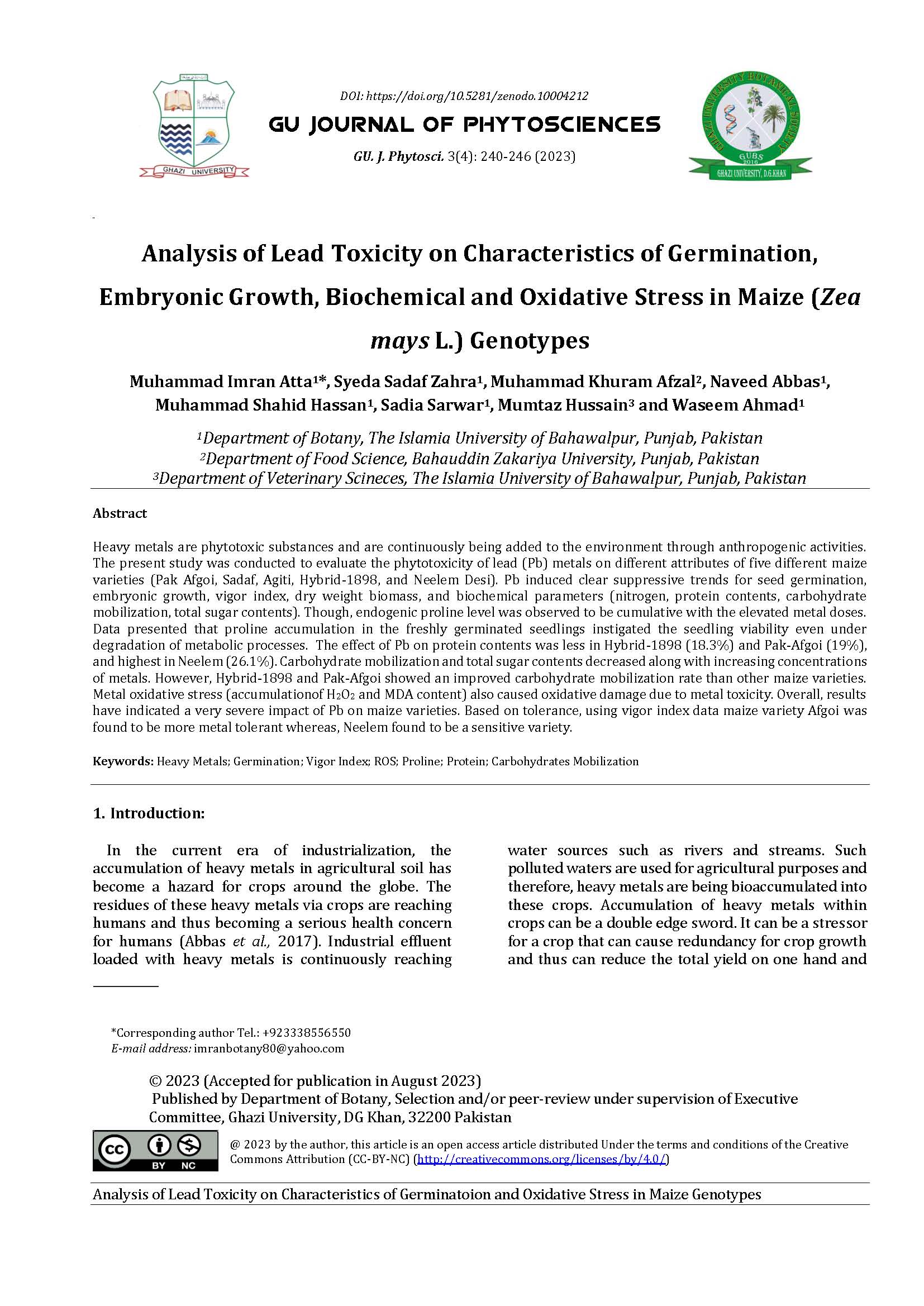Analysis of Lead Toxicity on Characteristics of Germination, Embryonic Growth, Biochemical and Oxidative Stress in Maize (Zea mays L.) Genotypes
Keywords:
Heavy Metals, Germination, Vigor Index, ROS, Proline, Protein, Carbohydrates MobilizationAbstract
Heavy metals are phytotoxic substances and are continuously being added to the environment through anthropogenic activities. The present study was conducted to evaluate the phytotoxicity of lead (Pb) metals on different attributes of five different maize varieties (Pak Afgoi, Sadaf, Agiti, Hybrid-1898, and Neelem Desi). Pb induced clear suppressive trends for seed germination, embryonic growth, vigor index, dry weight biomass, and biochemical parameters (nitrogen, protein contents, carbohydrate mobilization, total sugar contents). Though, endogenic proline level was observed to be cumulative with the elevated metal doses. Data presented that proline accumulation in the freshly germinated seedlings instigated the seedling viability even under degradation of metabolic processes. The effect of Pb on protein contents was less in Hybrid-1898 (18.3%) and Pak-Afgoi (19%), and highest in Neelem (26.1%). Carbohydrate mobilization and total sugar contents decreased along with increasing concentrations of metals. However, Hybrid-1898 and Pak-Afgoi showed an improved carbohydrate mobilization rate than other maize varieties. Metal oxidative stress (accumulationof H2O2 and MDA content) also caused oxidative damage due to metal toxicity. Overall, results have indicated a very severe impact of Pb on maize varieties. Based on tolerance, using vigor index data maize variety Afgoi was found to be more metal tolerant whereas, Neelem found to be a sensitive variety.

Downloads
Published
How to Cite
Issue
Section
License
Copyright (c) 2023 The Author

This work is licensed under a Creative Commons Attribution 4.0 International License.
All works published by the GU Journal of Phytosciences are freely available to copy, distribute, transmit, and adapt the work provided the original work and source are appropriately cited under a CC BY-NC 4.0 International License. The CC BY-NC licence allows for maximum re-use of open-access materials, and the author has full copyright over their publication. Under this license, users are free to share (copy, distribute, and transmit) and adapt for any purpose, but not for any commercial use (read full legal code).
Under Creative Commons, authors retain copyright in their articles.



